Top-rated mirrorless cameras for travel if you’re about to go on a trip.
If you're a travel photographer, a mirrorless camera is a must-have. It's lightweight, compact, and offers high-quality images and video, making it the perfect companion for capturing unforgettable travel memories.
So, whether you're scaling mountains, exploring new cities, or lounging on a tropical beach, don't forget to pack your mirrorless travel camera and start capturing those jaw-dropping photos!
When choosing the best mirrorless camera for travel, consider size and weight, sensor size and ISO capacity, weather sealing, and lens system. And don't forget to keep in mind the unique demands of your travel photography.
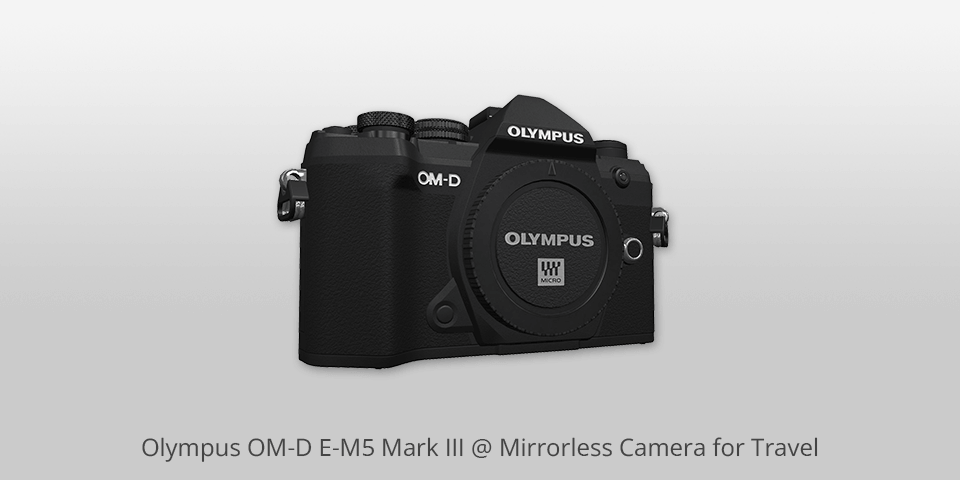
Megapixels: 20MP | Max continuous shooting speed: 10fps | Video: 4K
Olympus OM-D E-M5 Mark III is incredibly lightweight and compact, making it perfect for travel and urban photography. Its Micro Four Thirds sensor produces beautiful images with excellent detail, even in low light conditions.
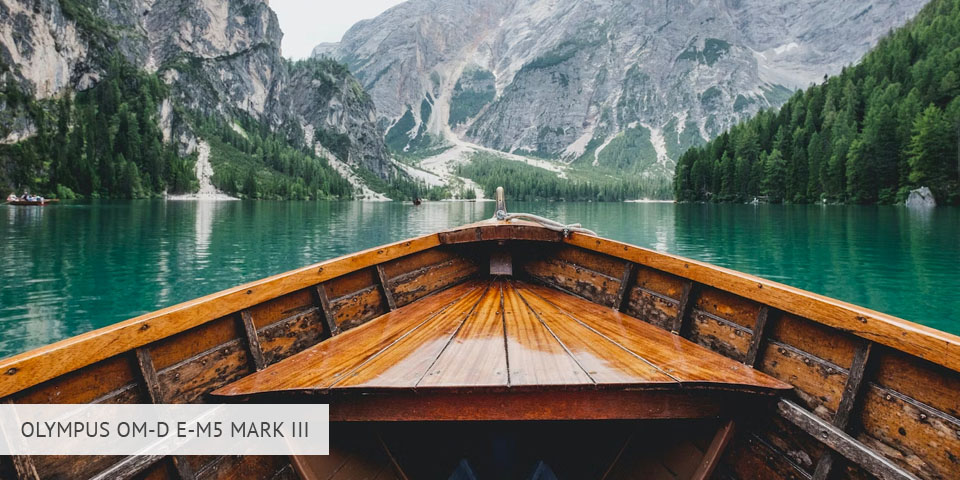
The TruePic VIII processor delivers a wide dynamic range that you'll love. Another great feature is the 'Pro Capture' mode which allows you to capture split-second action with a half-pressed shutter button. It also has decent video stabilization and a fully articulating screen for vlogging.
However, there are a few disadvantages to this mirrorless travel camera. It has a smaller sensor than some bigger APS-C cameras on the market, which may limit your ability to crop and enlarge images.
Additionally, the autofocus system can struggle in low light conditions, and the battery life is not as long-lasting as other Olympus cameras on the market.
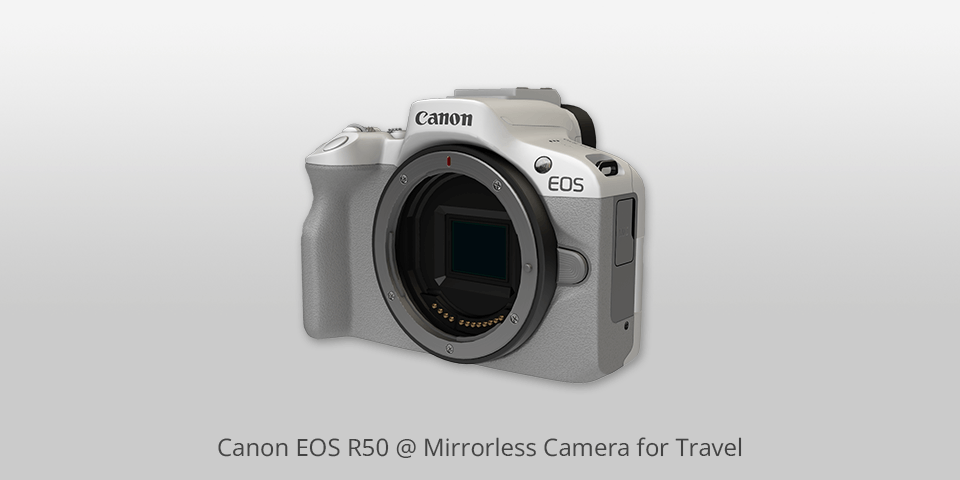
Megapixels: 24MP | Max continuous shooting speed: 15fps | Video: 4K
One of the biggest advantages of the Canon EOS R50 is its user-friendly interface. It has a simplified layout of controls, making it easy to navigate through the menus and adjust settings, so no wonder it is considered a perfect mirrorless camera for beginners. As one of the best mirrorless travel cameras, it also features a vari-angle touch screen, which is great for capturing shots from different angles.
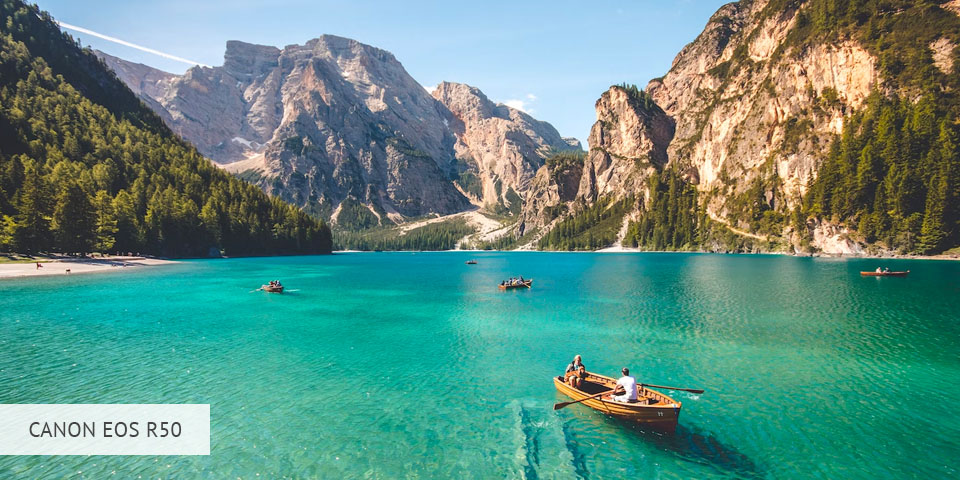
Another advantage of the EOS R50 is its advanced autofocus system. The Dual Pixel AF II provides fast, accurate autofocus performance in both stills and video, making it a great option for capturing photos of people and objects.
Additionally, this Canon camera offers the ability to shoot video in 4K, which is a higher resolution than Full HD.
However, the EOS R50 does have some drawbacks. One of the main issues I encountered was the lack of in-body stabilization, which can be a disadvantage when shooting handheld. Additionally, I found that the image quality was not great at night, which could be a problem for those who enjoy night photography.
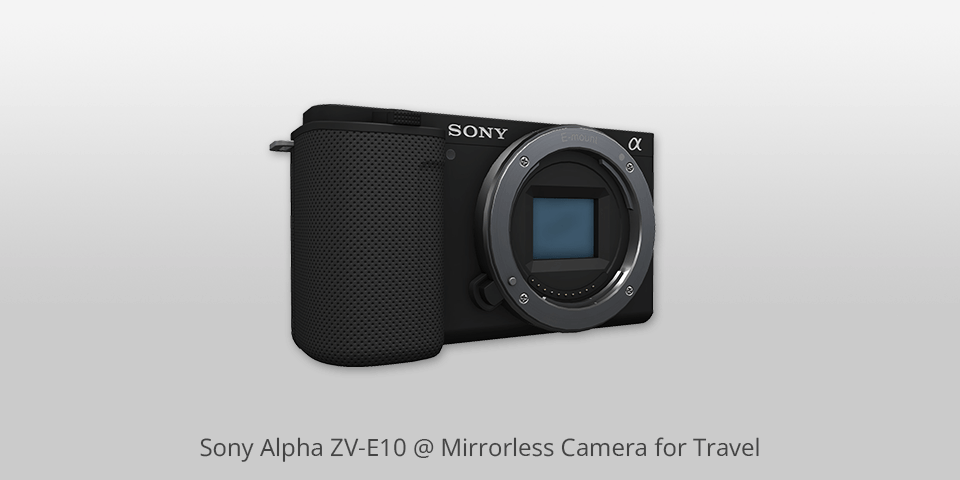
Megapixels: 24MP | Max continuous shooting speed: 11fps | Video: 4K
As a photographer who is always on the go, I was excited to try out the Sony Alpha ZV-E10 mirrorless camera for travel. One of the biggest advantages of the ZV-E10 is its video capabilities. The fully-articulating screen, live streaming capabilities, and electronic shake reduction make it a great choice for vloggers and content creators.
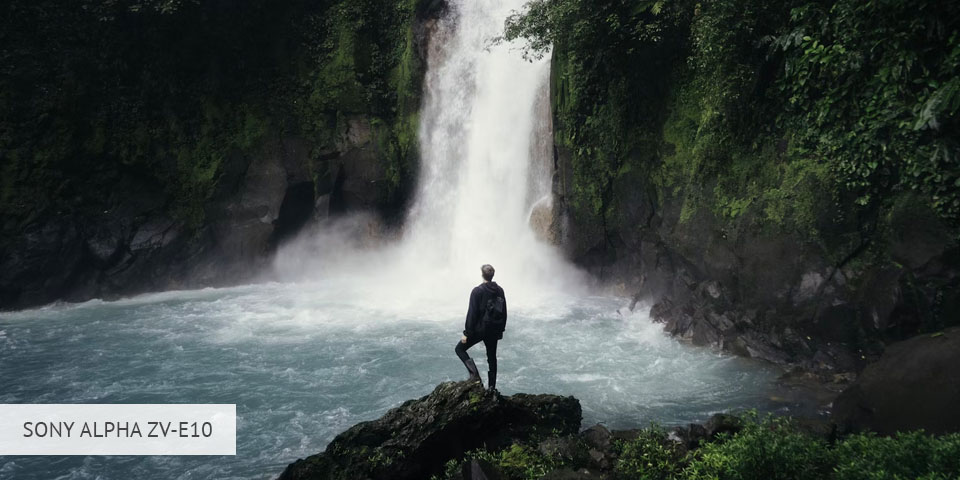
On the positive side, the ZV-E10 has impressive image quality at low ISO settings and shoots buttery smooth 1080p/120p Full HD slow-motion video directly in the camera. Being one of the best mirrorless cameras for video it also has the ability to detect and track moving subjects, which is helpful for capturing action sports or other fast-paced events.
However, it's important to note that the 24-megapixel APS-C sensor has a 1.5x crop factor when using full-frame lenses, so if you're looking for a wider field of view, this may not be the camera for you.
Additionally, the autofocus can be slow to respond, especially in low light conditions, and the camera often fails to detect faces, resulting in choppy footage.
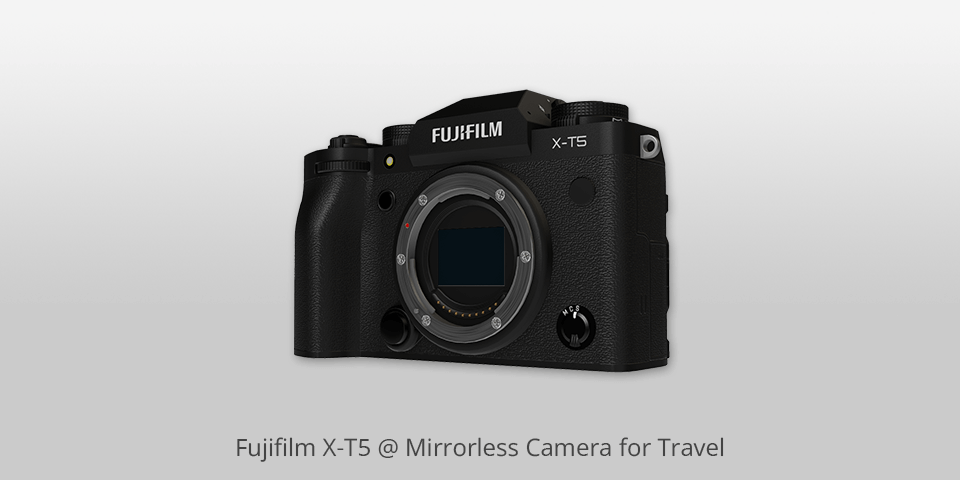
Megapixels: 40MP | Max continuous shooting speed: 15fps | Video: 4K
The X-T5 offers improved image quality, ISO 125 as standard sensitivity, and the fastest shutter speed of 1/180000 sec. It also has a Pixel Shift Multi-Shot feature that expands photographic variations, making it an excellent choice for landscape and travel photographers.
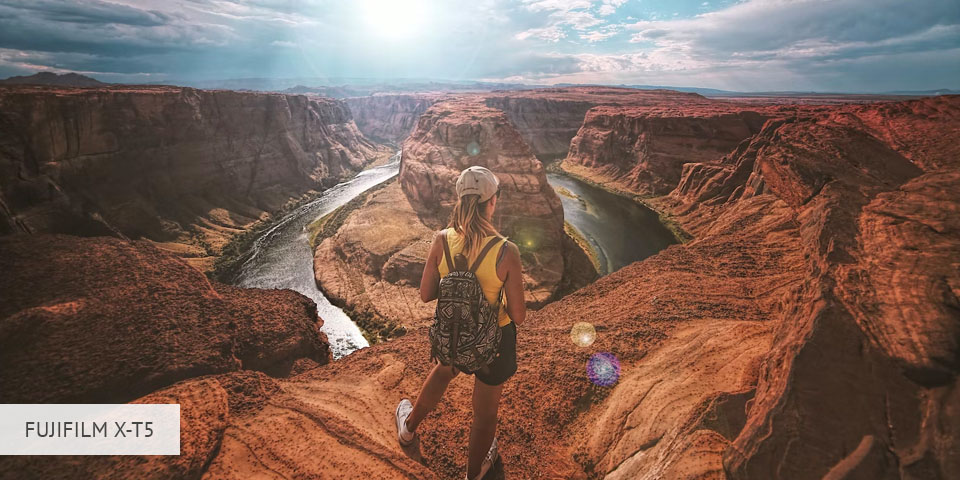
Additionally, it has a fully articulating touchscreen LCD, making it easy to use while vlogging on the go. This Fujifilm camera is also highly capable for video recording, able to record up to 6.2K in 4:2:2 10-bit color internally or 12-bit Apple ProRes and Blackmagic RAW via HDMI
However, there are some disadvantages to this mirrorless travel camera. Some users have reported issues with battery life and autofocus, which can be problematic for photographers who need to take quick and accurate shots.
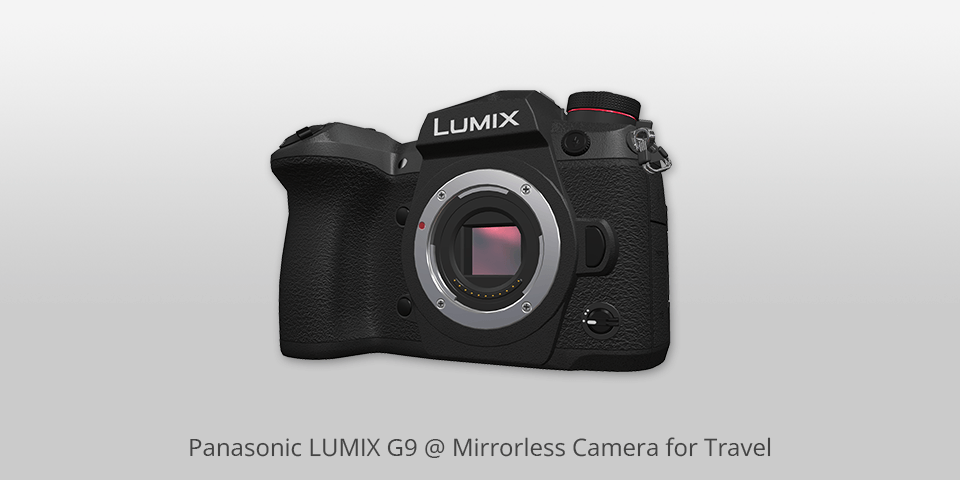
Megapixels: 20MP | Max continuous shooting speed: 20fps | Video: 4K
One of the main advantages of the G9 is its ability to capture very high-quality video. Panasonic cameras are known for their excellent video quality, and the G9 is no exception to this rule.
The camera has a range of AF modes, including Live Tracking and Zone AF, and a redesigned Eye Sensor that allows for faster focusing in low-light conditions and at high shutter speeds.
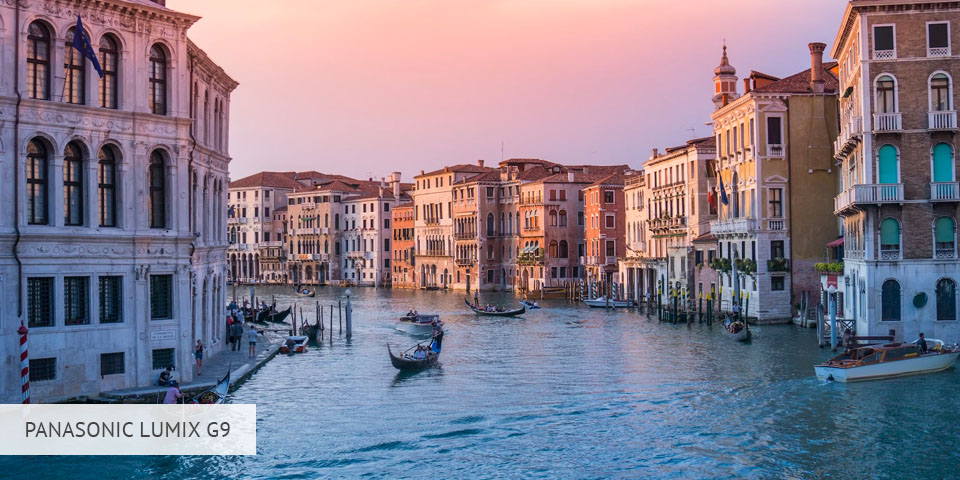
The G9 also has a touchscreen interface that works well for composing images and navigating the menus. It also has an excellent electronic viewfinder that refreshes at 120 fps and doesn't have blackout, which is useful when tracking subjects.
However, there are some disadvantages to the G9. While it's a great mirrorless camera for travel, it may not be the best option for those who need a device with a longer battery life. The G9's battery life is only around 400 shots per charge, which may not be enough for some users.
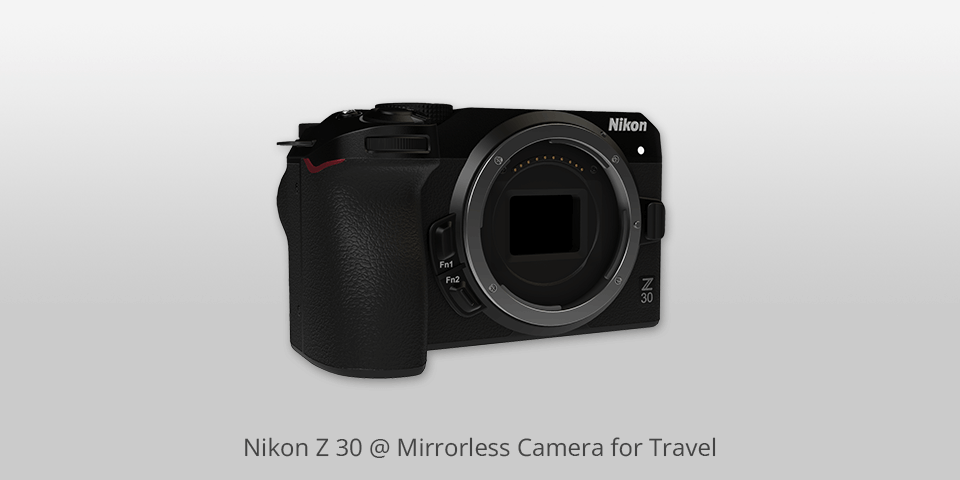
Megapixels: 21MP | Max continuous shooting speed: 11fps | Video: 4K
As a photographer who values the importance of quality equipment, I must say that the Nikon Z 30 mirrorless camera for travel is a solid piece of kit for those on a budget. It is designed to accommodate vloggers and content creators, with its APS-C sensor and full-articulating touchscreen.
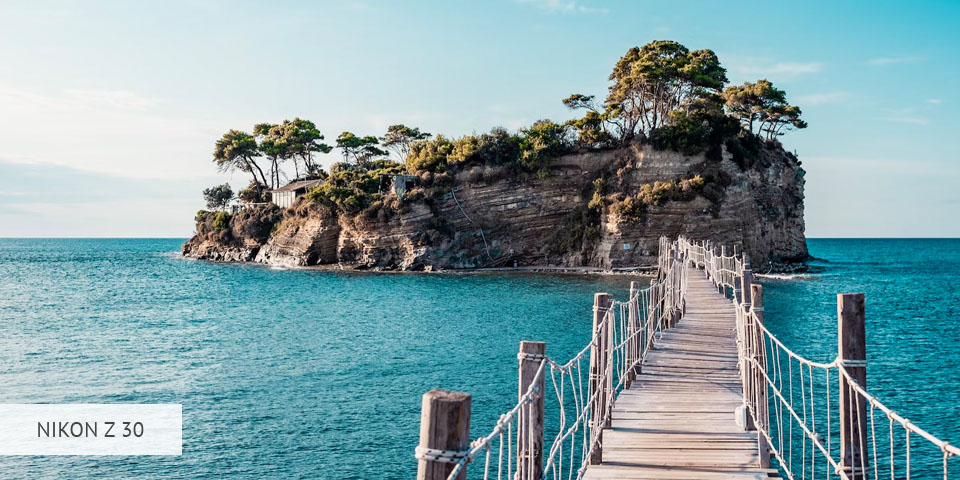
The Z 30 is the first of the Z series to feature a crop-less 4K video mode, which is a significant advantage for those looking to create high-quality video content.
However, the Z 30 is missing some essential features that may put off the target market, such as image stabilization and a headphone jack. These features may be crucial for certain types of photography and video work, so it is important to consider this before purchasing the camera.
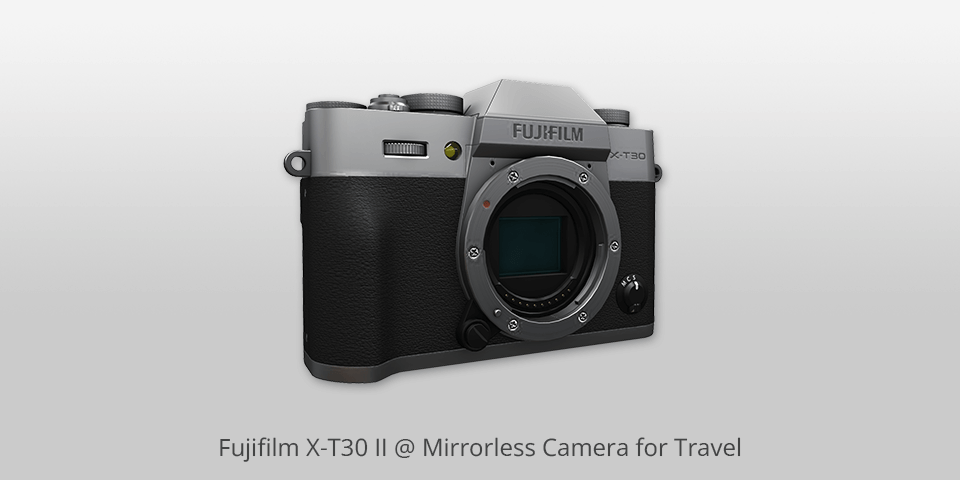
Megapixels: 26MP | Max continuous shooting speed: 8fps | Video: 4K
First off, the X-T30 II is incredibly compact and lightweight, which makes it a perfect mirrorless camera for travel. Its APS-C sensor is the same as that of the X-T3 and X-T4, which means it offers plenty of resolution for high-quality photos.
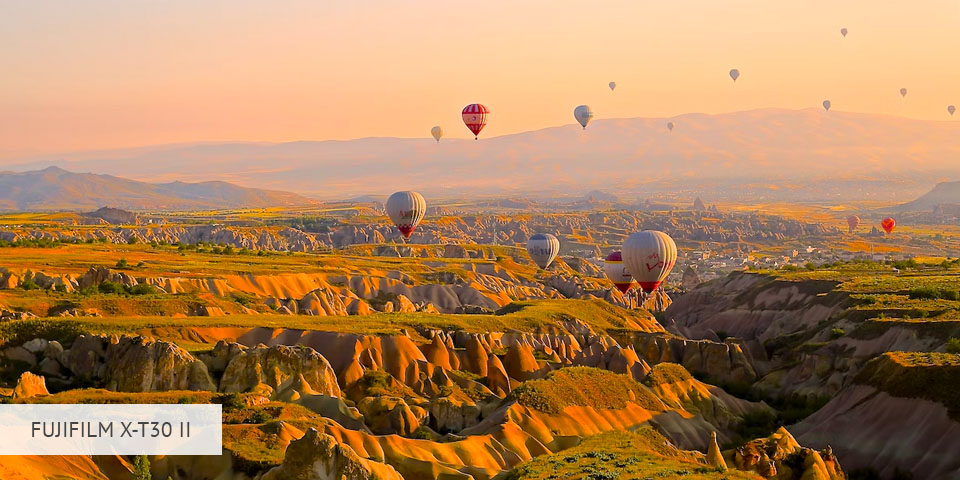
It also offers fast, accurate autofocus and has a great deal of control over how light can hit the sensor. In low-light situations, the X-T30 II's increased ISO range is a real asset. Combined with an incredibly fast shutter speed, you can hand-hold the camera at a lower sensitivity than most cameras would normally allow, without sacrificing quality.
However, there are some disadvantages to the X-T30 II. The battery life isn't the best, so if you're planning on doing a lot of shooting, you may need to bring some extra batteries with you.
Additionally, the camera doesn't have in-body image stabilization, so you'll need to rely on lenses with built-in stabilization or use a tripod for stable shots.
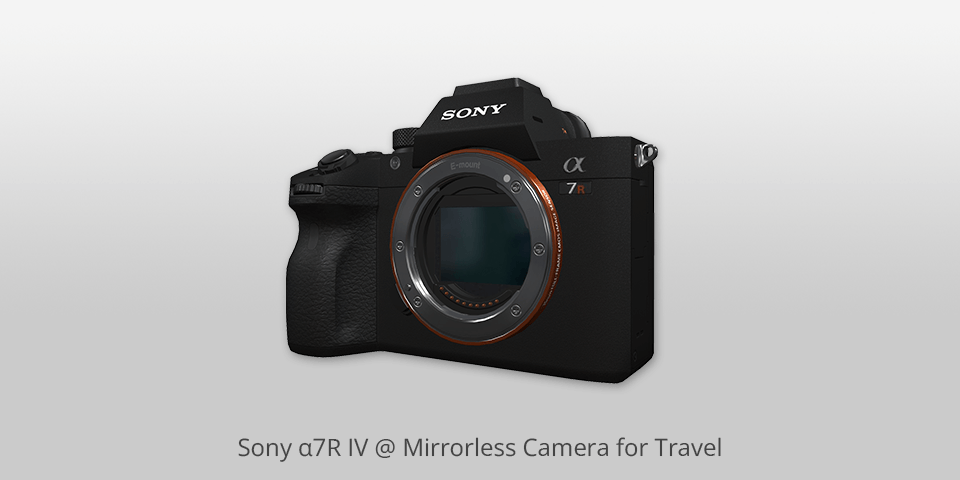
Megapixels: 61MP | Max continuous shooting speed: 10fps | Video: 4K
As a photographer who has spent decades capturing stunning images, I can say that the Sony α7R IV is a great option for those looking for a versatile mirrorless camera for travel that can shoot high-resolution images and videos.
It boasts a high-resolution full-frame sensor, excellent autofocus, and a range of features that make it a solid choice for landscape photographers of all levels.
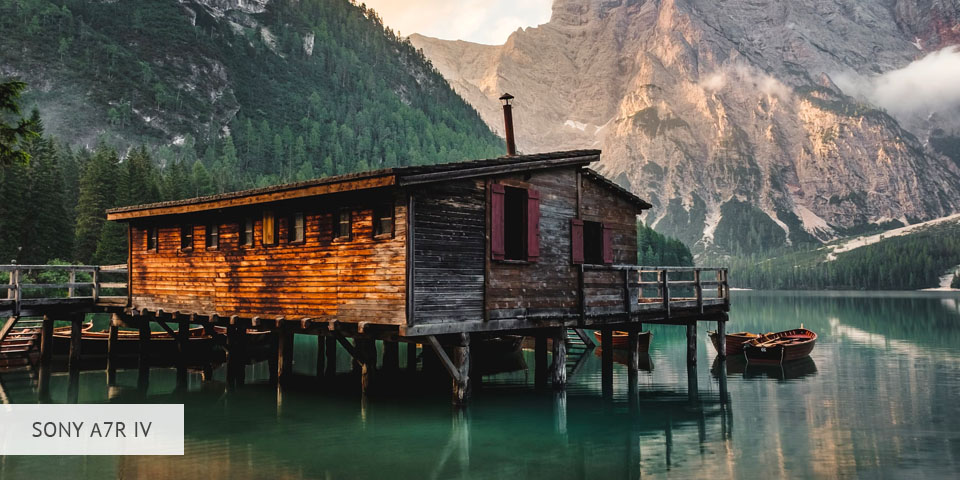
Another perk of this camera is its advanced processor, which improves both autofocus and burst-shooting performance. Additionally, the camera supports Pixel Shift Multi Shooting, which allows you to switch between still and video modes with ease.
However, there are some downsides to this camera as well. One issue is that the battery life isn't as powerful as some full-frame cameras, so you'll need to be mindful of your usage. Additionally, the camera can be quite expensive, which may be a deterrent for some photographers.
In the ongoing debate of mirrorless vs DSLR camera, the Sony α7R IV firmly champions the mirrorless camp with its innovation and adaptability. A true companion for travel enthusiasts, this camera melds high-resolution prowess with cutting-edge features, making each frame a testament to the artistry of modern photography.
| IMAGE | NAME | FEATURES | |
|---|---|---|---|

|
Olympus OM-D E-M5 Mark III
OUR CHOICE
|
CHECK PRICE → | |

|
Canon EOS R50
COMPACT
|
CHECK PRICE → | |

|
Sony Alpha ZV-E10
FOR VIDEO
|
CHECK PRICE → |
I'm a photographer who frequently travels for work, I know how important it is to choose the right camera for your adventures. Here are some significant factors to consider when selecting the best mirrorless camera for travel.
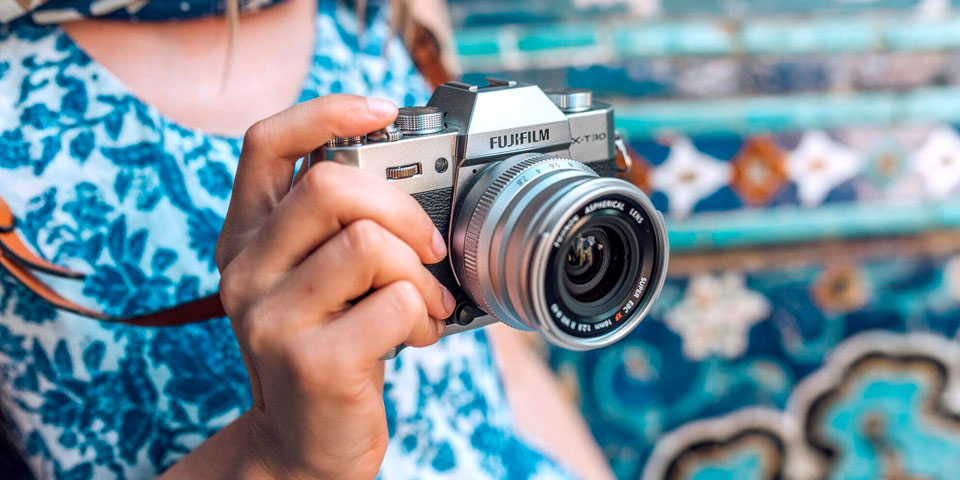
Discard unnecessary functions. If you aren't going to shoot a video, it makes no sense to pay for videos in 4K format. Immediately consider the need for the ubiquitous Wi-Fi interface. How often do you upload files online? If you do not, it is unlikely that you will use this function.
Discarding needless functions, you can get a decent camera under 500 dollars.
Dimensions. After all, mainly for the sake of compactness, many opt for the best travel mirrorless cameras. Transporting them is more convenient than DSLR type of camera.
But it is worth remembering that the compact camera is not always easy to operate, especially in manual mode. So, if you have big palms, take this factor into consideration, referring to reviews or feedback on a certain model.
Sensor size. This is a key parameter that in most cases determines the quality of images. If you are focusing on artistic shooting with further printing or publication of large photos, choose a mirrorless camera for travel with a large matrix.
In order to get pictures just to remember and publish them on social networks, you may purchase fast devices with smaller sensors. In order to get pictures just to remember and publish them on social networks, you may purchase fast cameras under 1000 dollars with smaller sensors.
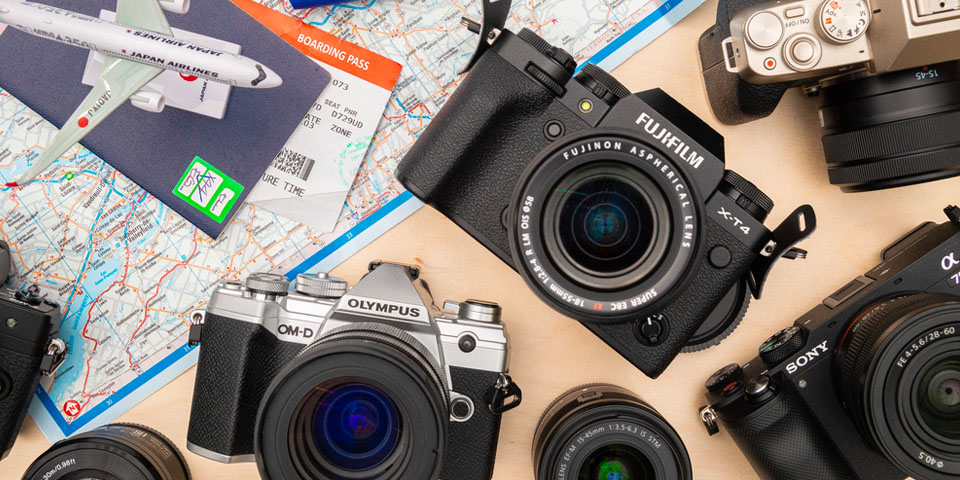
Accessories. If you are serious about developing as a photographer, in the future, you will definitely need new lenses and accessories. That's why it is better to decide on a system with a good range in a reasonable price range.
Protection. While picking the best mirrorless camera for travel, it is necessary to take into account the weather conditions you will be shooting in.
That is, how the device works at low or high temperatures, whether there is protection from dust and moisture, and what materials are used in the construction. It will be unpleasant if the equipment lets you down during the trip due to rain or accidental fall.
It is advisable to carry extra batteries or a portable charger to ensure uninterrupted shooting during travel. In addition, some mirrorless cameras offer USB charging, which allows for convenient charging using power banks or other USB power sources while on the move.
One common drawback is that some mirrorless camera systems may have a more limited selection of lenses compared to DSLR systems, particularly for specialized or niche purposes. Moreover, certain mirrorless cameras may have shorter battery life compared to DSLRs, requiring travelers to carry extra batteries or have access to charging options.
They often have durable bodies and weather sealing, making them suitable for extreme temperatures and rugged conditions. Besides, their advanced sensor technology and customizable settings allow for excellent performance in unfavorable lighting conditions, enabling travelers to capture high-quality images in various situations.
Mirrorless cameras offer a remarkable fusion of portability and performance, making them an ideal companion for travel enthusiasts. Their compact size and weight make them easy to carry, while their advanced features and interchangeable lenses ensure outstanding image quality and creative versatility.
Many cameras boast impressive low-light performance, allowing you to capture captivating nightscapes and intimate moments in challenging lighting situations. Look for models with larger sensors and advanced noise reduction technology for exceptional results.
Interchangeable lenses empower you to adapt to varying environments and subjects while traveling. Wide-angle lenses capture breathtaking landscapes, while telephoto lenses bring distant details to life. A versatile lens collection enhances your creative possibilities and elevates the diversity of your travel shots.
Yes. The technological advancements in mirrorless cameras have closed the gap between them and traditional DSLRs. With rapid autofocus, high-quality sensors, and a diverse range of lenses, mirrorless cameras excel in capturing stunning landscapes, vibrant cultures, and fleeting moments during your travels.